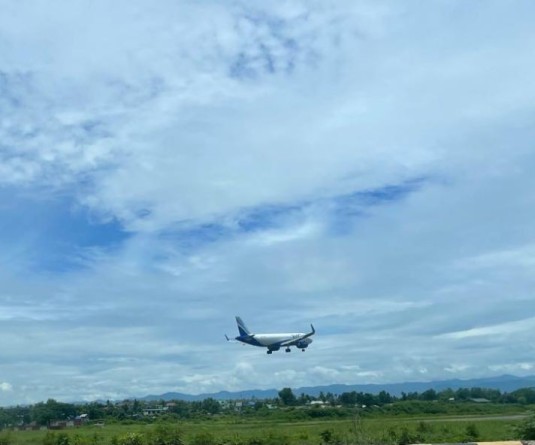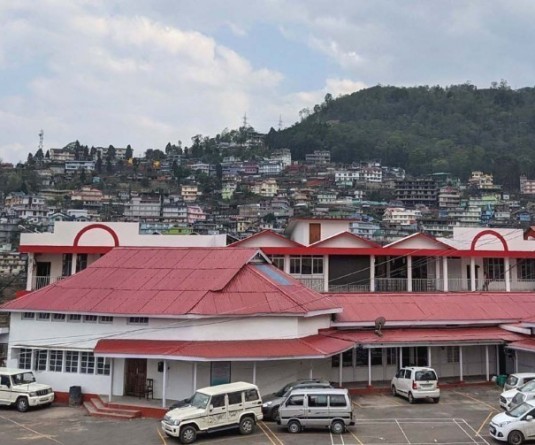
Dimapur, September 17 (MExN): The Working Committee, Naga National Political Groups (WC, NNPGs), strongly criticised the resolutions reportedly adopted at the September 12 consultative meeting and, among others, described the demand for a new interlocutor as an attempt to “sabotage” the solution to the Naga political issue.
Instead of resolving to urge the Government of India (GoI) to expedite the solution on the basis of the concluded talks, the demand for a new interlocutor is nothing new but expected to sabotage the solution and drag the Indo-Naga political process back to square one, asserted the WC, NNPGs in a statement.
It further noted that as a constituent of the GoI, it is not the responsibility of the State Government to demand a change of interlocutor.
Accordingly, the WC, NNPGs asked whether the Nagaland State Government has other agendas to be tabled and discussed besides the ‘two signed agreements’ made over the years with the Naga Political Groups (NPGs).
“If so, they need to bring it to the public domain rather than using subterfuge in the form of demanding a new interlocutor,” it added.
To support its contentions, the WC, NNPGs pointed out that it is common knowledge to the GoI, the Government of Nagaland’s Political Affairs Committee (PAC), the negotiating entities, and the Naga people at large that the Indo-Naga political dialogue “officially concluded” on October 31, 2019.
As per the Working Committee, prior to this, the former Interlocutor, RN Ravi, reportedly told the Parliamentary Standing Committee, Rajya Sabha, on July 19, 2018, that in 2015 the government reached an understanding with the NSCN (IM), which “agreed to a settlement within the Indian federation, with a special status” via the August 3, 2015 'Framework Agreement'.
“There is no ambiguity, and the official document agreed upon by both parties clearly testifies to the nature and trajectory of the process as well as its conclusion,” it added.
Thereafter, on January 17, 2020, Ravi, who was then Governor of Nagaland, briefed the Nagaland Legislative Assembly on the “culmination of the entire process and declared the political talks as successfully concluded,” the WC, NNPGs maintained.
However, when the final signing was imminent, the WC, NNPGs alleged that the Chief Minister Neiphiu Rio, along with the NSCN (IM), “vociferously demanded” the removal of Ravi as interlocutor, bringing the “entire process” to a grinding halt.
It further claimed that in a meeting with the WC, NNPGs in Delhi in 2022, the Chief Minister stated that the “first achievement of the PDA government was the successful removal of Ravi.”
Accordingly, it asserted that the delay in the implementation of the agreement(s) in its entirety is attributed to the hostile actions of the incumbent State Government.
As per the WC, NNPGs, the former Interlocutor was “fully empowered by the PMO (Prime Minister's Office) with cabinet status.”
With the completion of the interlocution phase, AK Mishra has now been tasked by the GoI as its representative to fast-track the solution, and therefore, the need for a new interlocutor does not arise at all, it added.
The WC, NNPGs further wondered whether the State Government “fully comprehends the meaning of ‘successfully concluded’ and also the role and meaning of an interlocutor when there is no further need for interlocution, as the process has concluded.”
Accordingly, it termed the “pre-mediated and pre-drafted resolution of the PAC, demanding the appointment of a new interlocutor at the political level, as nothing but another ploy to intentionally subvert and delay the political solution.”
A facilitator, in its true sense, must work sincerely to facilitate the solution without further delay and not “diabolically delay the solution” in collusion with anti-solution elements, it added.
The WC, NNPGs also observed that, despite open discussions during the state-sponsored consultative meeting where nearly all participants stressed the urgency of an early solution, the contradictory resolution adopted suggests a ‘malafide’ intent and purpose, aimed solely at promoting an anti-solution narrative.
Nevertheless, it called upon every stakeholder to ask who benefits from the delay in the political solution and what course of action must be taken together to clear the path for an immediate political solution on the basis of the “mutually signed agreement.”





